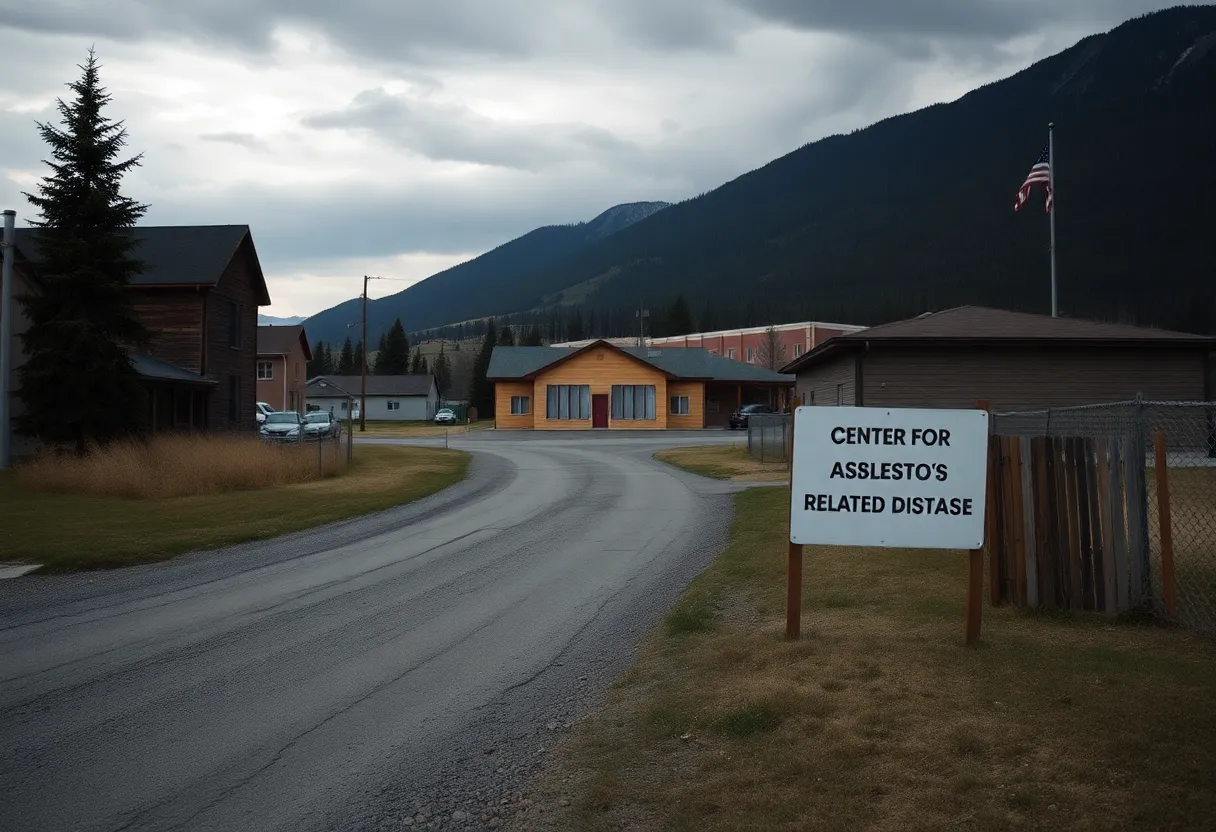News Summary
The closure of the Center for Asbestos Related Disease in Libby, Montana leaves the community at risk as vital health services are cut amidst legal troubles.
Closure of Libby’s Center for Asbestos Related Disease Shakes Local Community
The tiny town of Libby, Montana, known for its devastating history with asbestos exposure, is reeling from the abrupt shutdown of the Center for Asbestos Related Disease (CARD). This decision was enforced on May 7, 2025, by the Lincoln County Sheriff’s Office, acting on a court order that mandates the seizure of the clinic’s assets to satisfy a substantial judgment owed to BNSF Railway.
Legal Troubles Unfold
BNSF Railway, a company under the ownership of Warren Buffett, has been embroiled in legal battles regarding its alleged involvement in the contamination of Libby with asbestos. The court found that CARD had committed fraud by submitting 337 false claims, leading to a jury verdict in 2023. The damages awarded to BNSF topped $6 million, and after accounting for attorney fees and costs, the railway company is claiming a total of $3.1 million.
The fallout from the verdict forced CARD to declare bankruptcy, and a subsequent federal court approved the clinic’s bankruptcy settlement, which included BNSF as a key stakeholder. As a consequence of these legal issues, the closure of CARD has left a massive gap in services for victims of asbestos exposure, particularly crucial health screenings for conditions such as mesothelioma and asbestosis.
The Role of CARD
For over two decades, CARD has been on the front lines of addressing the health implications of asbestos exposure in Libby and the neighboring regions. The clinic provided essential health screenings, monitoring, and treatment for local residents impacted by the nearby vermiculite mine, notorious for its release of toxic asbestos dust.
The mine operated from the 1920s until its closure in 1990, yet the dangerous legacy of asbestos exposure continues to haunt the community. The ongoing cleanup efforts are part of a Superfund program aimed at eradicating contamination from years of mining operations.
Community Health at Risk
With a population of around 3,000, Libby’s residents are now faced with the grim prospect of reduced access to vital health services. The vacuum left by CARD’s closure weighs heavily on community health, as fewer individuals will be screened for asbestos-related health issues.
The clinic employed approximately 19 people, all of whom are now without jobs, further exacerbating the economic challenges that the community faces. It is estimated that a significant portion of the clinic’s budget was funded by a $3 million grant from the CDC, which is currently under review, adding to the uncertainty surrounding local health initiatives.
Legal and Ethical Concerns
Adding another layer of complexity, CARD faced a local lawsuit in October 2024 for allegations of medical malpractice and wrongful death related to its prescribing practices, specifically regarding opioid prescriptions. This lawsuit has further tarnished the reputation of a clinic that was once a beacon of hope for residents suffering from devastating health issues stemming from asbestos exposure.
A Community in Crisis
Local authorities, including Lincoln County Sheriff Darren Short, have expressed their concerns that the closure of CARD undermines public health efforts and leaves vulnerable residents unmonitored. As the town has a long history of asbestos-related health issues, the need for ongoing screening and treatment has never been more critical.
The struggle of Libby residents continues as they cope with the consequences of past industrial negligence and navigate the challenges posed by the sudden closure of CARD. The community remains hopeful that the clinic can one day reopen its doors and continue its mission to support those affected by asbestos exposure.
Conclusion
The future of asbestos-related health services in Libby hangs in the balance, with residents anxiously awaiting the outcome of ongoing legal battles and funding reviews. As the situation develops, the stark reality is that the risks of exposure to toxic dust linger on, interwoven with the lives and health of Libby’s residents.
Deeper Dive: News & Info About This Topic
HERE Resources
Capri Mall Closes Permanently: A Safety Nightmare Unveiled
Asbestos Screening Facility in Libby, Montana Closes Amid Legal Turmoil
Closure of Libby’s Asbestos Screening Clinic Raises Public Health Fears
Libby, Montana Loses Vital Asbestos Clinic Amid Controversy
Major Setback for Libby, Montana: Asbestos Screening Clinic Faces Closure
Closure of Asbestos Clinic Sends Shockwaves Through Libby, Montana
Disaster Strikes LIBBY: Asbestos Screening Clinic SHUT DOWN Amid Legal Chaos
Bestwall LLC Appeals Bankruptcy Ruling in Asbestos Liability Case
Closure of Asbestos Help Clinic Shakes Small Montana Town
The Asbestos Crisis in Libby Takes a New Turn: CARD Faces Financial Ruin



















